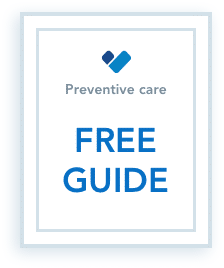What is a catastrophic health insurance plan?
A Catastrophic health plan has very low monthly premiums and a very high annual deductible. These plans offer people who don’t access healthcare very often a way to protect themselves against worst-case scenarios. With a Catastrophic plan, you’ll have to pay for the majority of care yourself out-of-pocket, but you will have some protections if you face a major illness or injury and need more intensive levels of care. Learn more about what Catastrophic health plans do, and do not, offer here.
See if you qualify for a catastrophic health plan, and whether it’s the most affordable option for you, by entering your zip code below.
Who Qualifies for a Catastrophic Health Plan?
Not everyone is eligible for a Catastrophic plan, too. They are only available to people under the age of 30, or those over 30 who qualify for a hardship exemption.
According to HealthCare.gov, you will need to prove one of the following to qualify for a hardship or affordability exemption to qualify for a catastrophic plan if you’re over the age of 30:
- You were homeless
- You were evicted or were facing eviction or foreclosure
- You received a shut-off notice from a utility company
- You experienced domestic violence
- You experienced the death of a family member
- You experienced a fire, flood, or other natural or human-caused disaster that caused substantial damage to your property
- You filed for bankruptcy
- You had medical expenses you couldn’t pay that resulted in substantial debt
- You experienced unexpected increases in necessary expenses due to caring for an ill, disabled, or aging family member
- You claim a child as a tax dependent who’s been denied coverage for Medicaid and CHIP, and another person is required by court order to give medical support to the child. In this case you don’t have to pay the penalty for the child.
- As a result of an eligibility appeals decision, you’re eligible for enrollment in a qualified health plan (QHP) through the Marketplace, lower costs on your monthly premiums, or cost-sharing reductions for a time period when you weren’t enrolled in a QHP through the Marketplace
- You were determined ineligible for Medicaid because your state didn’t expand eligibility for Medicaid under the Affordable Care Act
- The exemption for “grandfathered” individual insurance plans is no longer available for 2017 and later
- You had another hardship. If you experienced another hardship obtaining health insurance, use this form to describe your hardship and apply for an exemption.
To qualify for a hardship exemption, you’ll need to complete an exemption application form based on the state you live in. You can find the correct form and instructions for submitting here.
Do Tax Subsidies Apply to Catastrophic Health Plans?
Keep in mind that you can’t use a premium tax credit towards a Catastrophic plan. If you qualify for a premium tax credit or cost-sharing reductions, you will likely get more value out of (and have lower out-of-pocket costs with) a Bronze or Silver plan. See if you qualify for subsidies by entering your zip code below.
To learn more about metal levels and what they cover, grab our quick guide to understanding metal levels.
How do Catastrophic Health Plans Compare to Other Marketplace Plans?
Catastrophic plans have the same essential health benefits as other Marketplace plans. Like other Marketplace plans, they also must cover certain preventive health services at no cost. These plans also cover three primary care visits a year before you meet your deductible. Grab our guide to all the preventive care services covered by Marketplace plans to learn more.
Otherwise, all other care you will pretty much pay for out-of-pocket until you meet your deductible. In 2019, the deductible for all Catastrophic plans was $7,900. After you meet that deductible, your Catastrophic plan will pay for all covered care, with no additional copays or coinsurance.
Depending on whether or not you qualify for subsidies on the Marketplace and how often you access health care, you may be better served, value-wise, by a Bronze or Silver Marketplace plan.
Bronze Plans
In comparison, Bronze plans offered on the Marketplace pay for 60 percent of covered healthcare costs, leaving consumers to pay for 40 percent of their medical expenses. As a result, they have the lowest monthly premiums of all metal tiers, but ultimately leave you with the highest costs when you need care. They also typically have the highest annual deductibles. With Bronze plans, you might need to pay several thousand dollars out-of-pocket before your real cost savings kicks in. Bronze plans are best for those looking for the most cost efficient way to get coverage. However, they leave consumers with the risk of facing steep bills should you need to access any major medical care.
Silver Plans
Silver plans pay for 70 percent of covered healthcare costs, leaving consumers to pay for 30 percent of their medical expenses.
SIlver plans typically have moderate monthly premiums and present consumers with moderate costs when they need care. With a Silver plan, your annual deductible will be lower than that of a Bronze plan. One of the most important aspects of Silver plans is that if you qualify for cost-sharing reductions based on your income level and family size, Silver plans are the only plans to which you can apply these extra savings that further reduce your costs. If you qualify for cost-sharing reductions and choose a Silver plan, you could end up saving thousands of dollars a year should you need to access lots of healthcare services. So, if you think you’ll end up using your health plan a lot and qualify for cost-sharing reductions, it makes a lot of sense to choose a Silver plan, with its slightly higher monthly premiums, over a Bronze plan.
What are my health insurance options?
If you qualify for a Catastrophic plan, it will be shown to you as one of your options when you complete an application for Marketplace insurance through HealthSherpa. Keep in mind with all plan types that your plan pays for the bulk of the costs for your covered medical services only after you’ve met your annual deductible. This means that if you are facing a stack of high medical bills, you’ll ultimately get more value out of a plan that pays out for more care, even if you’re paying higher premiums.
Don’t forget that subsidies make the cost of ACA health insurance much more affordable—over half of all HealthSherpa consumers have a net premium of $50 or less per month after subsidies, and 94% of users received a subsidy.
Grab our quick guide to all your health insurance options, including COBRA, Medicaid, Medicare, Marketplace insurance, and more.
Depending on your income level, you can also see if you qualify for Medicaid in your state. Medicaid is a program jointly funded by the federal government and the states to provide health insurance coverage to low-income Americans. Medicaid eligibility is determined based on income level, and adults, children, pregnant women, the elderly and people with disabilities all can become Medicaid recipients.
Applying for health insurance through HealthSherpa will automatically let you know if you qualify for Medicaid where you live. Enter your zip code here to see if you’re eligible for Marketplace subsidies, Medicaid, or a catastrophic plan.














I ‘m 62 yrs old. My husband has just filed for divorce after our 45 yrs of marriage, I have been with him for 49 yrs. He doesn’t want to cover me until I am 65. He doesn’t want me to have hardly ANYTHING. I am DISABLED and am in BAD shape due to the fact he was keeping me from medical help. I had Hormonal Breast Cancer Stage 3 in 2012. Now I have bad side effects from Chemo. Osteoarthritis and Bursitis in BOTH knees and BOTH shoulders. I have an issue with my Aortic Valve in my heart now, also. All this due to no attention made to my body. He always told me we couldn’t afford it, not KNOWING he was BLOWING our money. I Need GOOD insurance, due to my health.
Hello! Sorry to hear that. You can give us a call at (872) 228-2549 and we’ll help you get enrolled.
Insurance is a scam to keep hard working American’s paying hundreds of dollars for no reason! I say down with those insurance companies so we can keep the salary we work so hard for!
Mmm… Would you say the same thing laying in a hospital bed with no quality coverage getting treatment from a new resident doctor and then, if you make it out alive, having all the debt on your credit?